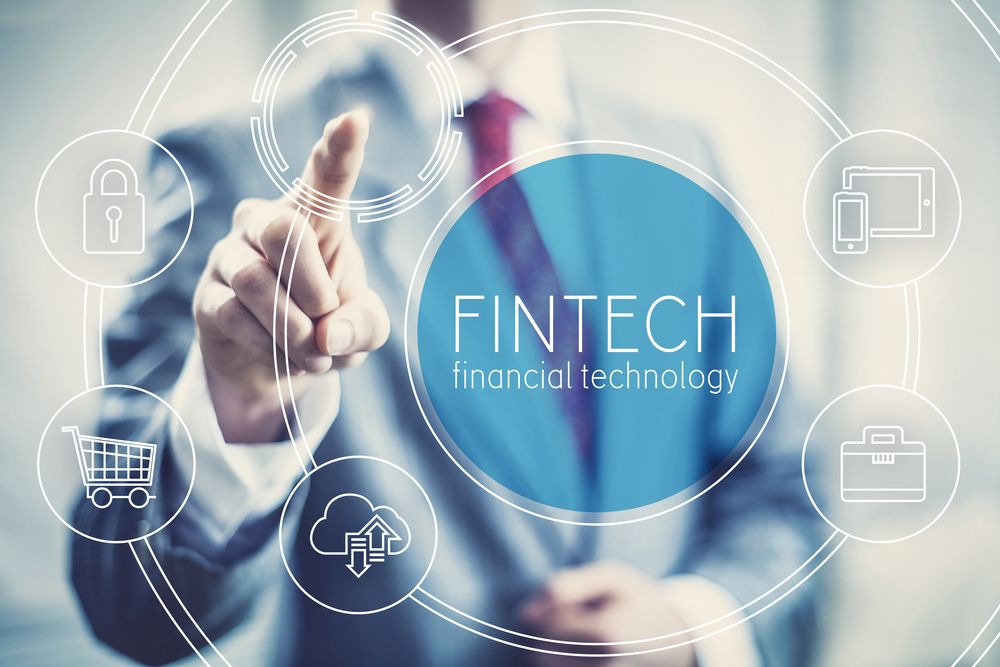
Welcome to the dynamic world of financial technology, or ‘fintech’ as it’s affectionately known—a sector that is rapidly reshaping how we interact with money and opening up an array of opportunities for the savvy investor. The fintech industry has evolved from simple mobile banking apps to an ecosystem teeming with innovations in digital payments, personal finance, and even cryptocurrency. As we delve into the evolution of fintech, we’ll explore the transformative changes it has brought about and the vast opportunities that now lie within reach for those with a keen eye on the future of finance.
The Dawn of Fintech and the Digital Revolution
The inception of fintech can be traced back to the late 20th century, with the arrival of the internet and the first online banking services. However, it was not until the global financial crisis of 2008 that fintech truly began to flourish. In the wake of the crisis, trust in traditional banks wavered, and a door opened for technology-driven companies to offer new, innovative financial services.
The digital revolution in finance began with the simplification of banking processes and the introduction of user-friendly platforms for managing personal finances. Companies such as PayPal and Square were among the pioneers, offering digital payment solutions that were accessible to the masses. The success of these platforms revealed an appetite for financial services that were not just functional, but also intuitive and immediate.
The Rise of Mobile Banking and Payment Solutions
As smartphones became ubiquitous, fintech companies leveraged the technology to bring banking and payment services directly to consumers’ pockets. Mobile banking apps became the norm, allowing people to check their balances, pay bills, and transfer money with just a few taps on their screens. This convenience led to a surge in mobile payment adoption, with apps like Venmo and Google Pay making it easier than ever to split a dinner bill or send money to friends and family.
But the opportunities in mobile banking and payments didn’t stop at convenience. These platforms also opened the door to financial inclusion, reaching unbanked and underbanked populations who previously lacked access to traditional banking services. Investors took note of this expansive potential, and fintech companies in the mobile space began to see significant injections of capital.
Blockchain and Cryptocurrency: A New Frontier
The advent of blockchain technology and the rise of cryptocurrencies such as Bitcoin introduced a whole new dimension to the fintech landscape. These digital currencies promised a decentralized and secure way to transact, free from the control of any single entity. While initially met with skepticism, the blockchain technology underlying cryptocurrencies has since been recognized for its potential to revolutionize not just payments, but also areas like supply chain management and contract law.
For investors, the volatility of cryptocurrencies has been both a blessing and a curse, offering the chance for high returns but also presenting significant risks. However, the technology itself has attracted a great deal of investment, with many believing that blockchain will underpin the next wave of fintech innovation.
Artificial Intelligence and Machine Learning in Finance
Artificial intelligence (AI) and machine learning have been game-changers for fintech, providing the tools needed to analyze vast amounts of data and automate complex financial decisions. Robo-advisors, which use algorithms to provide investment advice and manage portfolios, have democratized access to wealth management services. These AI-driven platforms offer personalized advice at a fraction of the cost of traditional financial advisors, making investment management accessible to a broader audience.
Furthermore, AI has enhanced risk management and fraud detection, allowing fintech companies to offer more secure services. By recognizing patterns and predicting behaviors, machine learning algorithms can identify suspicious activities and prevent fraudulent transactions in real-time. For investors, this means a reduction in risk and an increase in confidence when engaging with fintech platforms.
Regulatory Challenges and Innovations
As fintech continues to evolve, it faces an ever-changing regulatory landscape. Governments and financial authorities around the world are grappling with the challenge of regulating a sector that is constantly pushing the boundaries of what’s possible. The introduction of regulations like the European Union’s PSD2 and the General Data Protection Regulation (GDPR) signifies a move towards more oversight and consumer protection in the fintech space.
However, regulation should not be viewed solely as a hurdle. In many cases, it has spurred innovation, with fintech companies developing new solutions to comply with regulatory requirements. Moreover, some jurisdictions have established ‘regulatory sandboxes’ that allow startups to test their innovations in a controlled environment, reducing the time and cost of bringing new products to market.
Investors should stay informed about regulatory developments, as these can have significant implications for fintech companies and their potential for growth. A proactive approach to understanding regulatory changes can help investors identify which companies are best positioned to thrive in an increasingly regulated industry.
The evolution of fintech has been nothing short of extraordinary, and it shows no signs of slowing down. For the savvy investor, fintech offers a wealth of opportunities to participate in the growth of a sector that is fundamentally changing the world of finance. From the early days of online banking to the cutting-edge applications of AI and blockchain, fintech has consistently pushed the envelope, challenging traditional models and offering innovative solutions.
As we look to the future, the keys to success in fintech investing will be adaptability, a deep understanding of technological trends, and a keen awareness of regulatory shifts. By staying abreast of the latest developments and recognizing the transformative impact of fintech, investors can position themselves to capitalize on the exciting opportunities that lie ahead. The fintech revolution is well underway, and for those willing to embrace its evolution, the potential rewards are vast.
